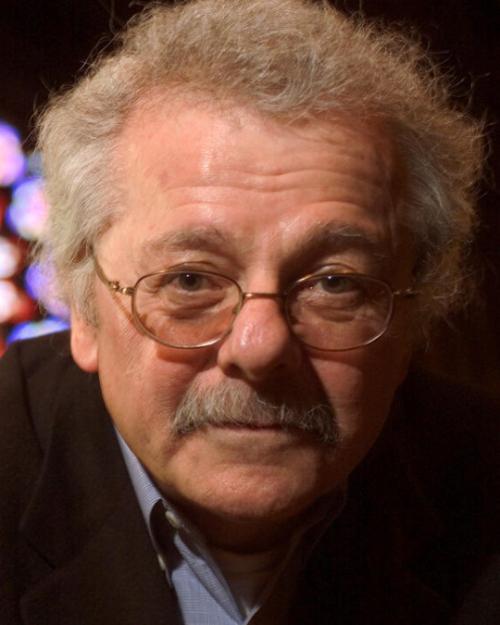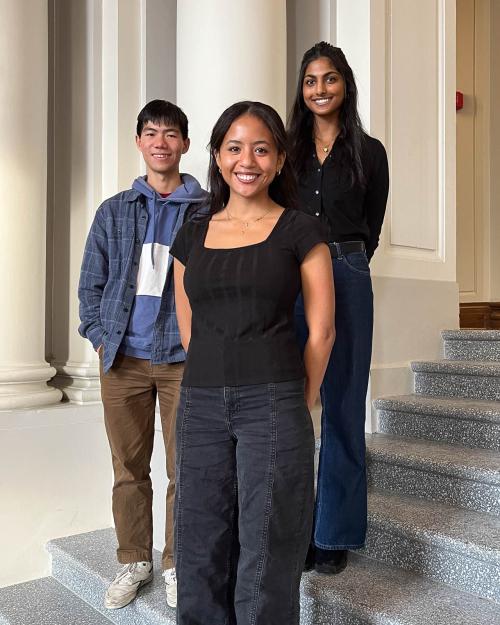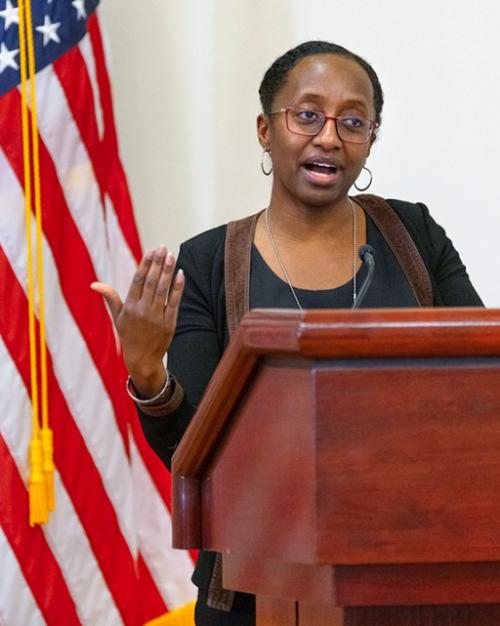Drawing on personal experience, a Cornell faculty member urged policymakers at a White House event to consult extensively with beneficiaries of government programs and services and learn from their experiences.
Jamila Michener, associate professor in the College of Arts and Sciences and the Cornell Jeb E. Brooks School of Public Policy, senior associate dean of public engagement in the Brooks School and co-director of the Cornell Center for Health Equity, said equity and effectiveness are enhanced when more voices contribute to policymaking, especially the voices of those most vulnerable to the effects of a policy.
Michener was one of the featured speakers on Feb. 22 as the White House Office of Science and Technology Policy and Pennsylvania State University’s Evidence-to-Impact Collaborative hosted the final Evidence Forum of the Biden-Harris administration’s Year of Evidence for Action.
In a talk titled “Broadening the Tent,” Michener urged policy researchers and practitioners to examine their methodological choices, research partnerships and evaluation metrics through the lens of inclusiveness.
Michener spoke about her mother’s experience as a Medicaid beneficiary who had been transported from her nursing home to a dialysis center for treatment. Michener went to visit with her in a hallway after the treatment, thinking it would only be a few minutes before the crew arrived to return her to the nursing home. It ended up being a two-hour wait.
“I started to wonder, how often had my mother waited for two hours for her transport to show up, how many other Medicaid beneficiaries were waiting, vulnerable, for hours for their transport to show up, how could we learn more about this program and how we might be able to improve outcomes,” Michener said.
Even though she is a health policy scholar and author of a book on Medicaid, Michener gained valuable insight into the program’s shortcomings through that hallway wait.
“The knowledge that we get from truly taking into account the experiences of people who are most vulnerable and have the most at stake in the face of policy and government intervention has the power to enrich our evidence ecosystem the way few other things do,” she said.
The Evidence Forums have explored the state of research and the use of scientific evidence in government settings, with a particular focus on addressing issues of equity across the evidence ecosystem.
The audience included senior state and federal policymakers, academic and nonprofit leaders, as well as First Gentleman Doug Emhoff, husband of Vice President Kamala Harris.
“I believe that this kind of policy engagement matters,” Michener said of the event. “It was a powerful and influential set of leaders with which to engage. The event was followed by opportunities to talk further, and I got lots of positive feedback about the ideas I shared.”
Jim Hanchett is assistant dean of communications for the Cornell Jeb E. Brooks School of Public Policy.




